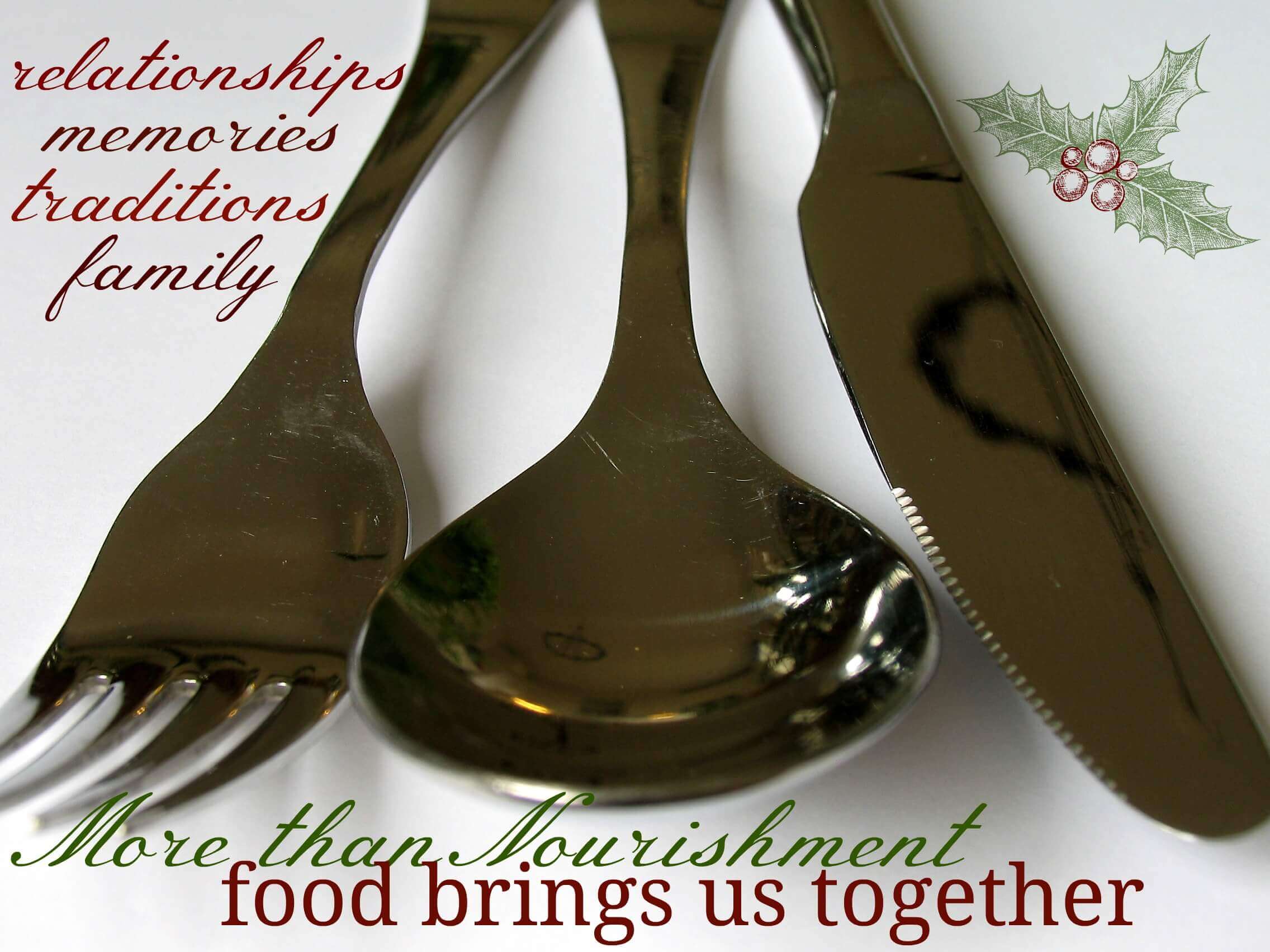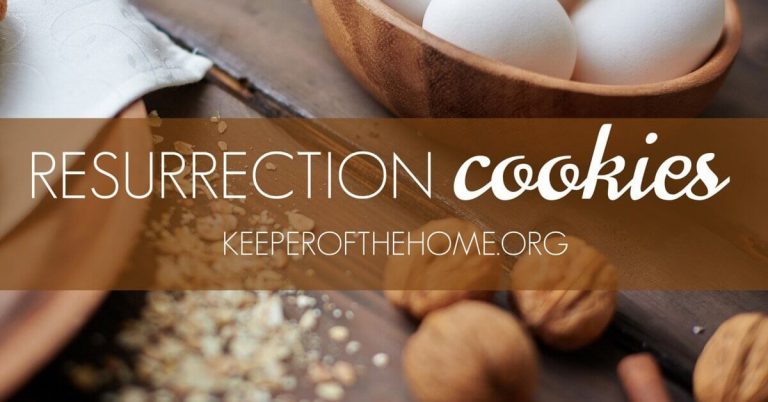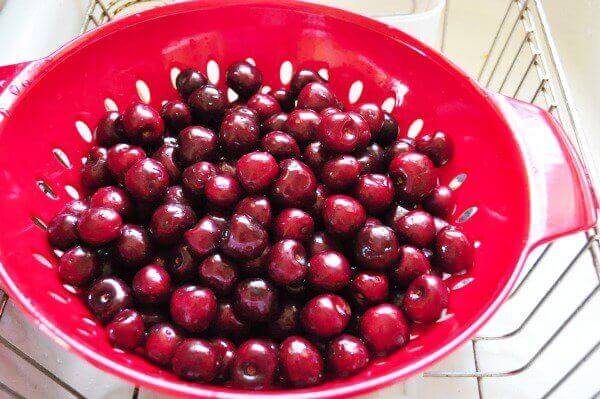Beyond Nourishment: Food and Family Traditions

By Courtney, Contributing Writer
With Christmas drawing near, we’re planning and preparing for time with family and friends, sharing the joy and wonder of the season with them. Many of these get togethers are centered around food. After all, aside from providing nourishment for our bodies, food serves other important purposes as well.
Of those purposes are relationship and tradition. Food is integral in bringing people together–at the dinner table every evening to family reunions during the holidays.
For those of us who’ve turned our backs on the Standard American Diet in lieu of a journey back to authentic food, the food our Creator designed and intended for us to eat, how do we deal with times when we’ll encounter a lot of food that might not sit well in our stomachs? If we’ve decided to be intentional about avoiding food that has a negative impact on our health, should we stick with it when in the company of others?
A Modern Dilemma
I wonder what it was like long, long ago when this was a non-issue. Before corporate farms and genetic modification of seeds. Before factories and feedlots. Before Betty Crocker and the USDA. All throughout history, up until just recently, people came together to share meals and didn’t have to worry about whether the food was REAL or not.
Today, we have allergies, behavioral and psychological disorders, and scores of physical health conditions as a result of modified and processed food. Look at the gluten-free craze, for instance. Gluten sensitivity is epidemic, thanks in part to modern wheat that differs greatly from the ancient variety.
Genetically modified foods, namely those that contain corn and soy, pose a major problem, not just when consuming those foods, but when consuming animal foods sourced from feed containing corn and soy. What about refined sugars or food dyes that take your kids from sweet to sassy in 0.9 seconds?
The food today hardly resembles Eden.

When Food Becomes an Idol
Being concerned with what we put into our bodies is not wrong. It is good that we are aware of the current state of food and that we desire to go back to the real thing. In 1 Corinthians 6:19, in reference to sexual immorality, Paul reminds us that our body is a temple of the Holy Spirit.
“Or do you not know that your body is a temple of the Holy Spirit within you, whom you have from God? You are not your own, for you were bought with a price. So glorify God in your body.” ~ 1 Corinthians 6:19
God is concerned with what we do with our bodies, which includes food and our relationship to it. God had plenty to say to the Israelites about what to eat and what not to eat.
We are reminded frequently to fast and pray, for it is when we break free from the control food has over us or let go of unhealthy relationship with it that we can hear God more clearly. We are told not to become drunk with wine. Well, unfortunately, many of today’s altered and processed foods have a similar mind-altering affect. We now know that refined sugar is more addictive than cocaine!

Our concerns with eating healthy are certainly warranted. However, food can become an idol in our lives if we exalt it to a higher level than it should be, and if we take comfort in it in the place of God, or if we develop a sense of control over our health that goes above and beyond simple stewardship of our bodies.
On the Standard American Diet, food can easily become an idol because of its stimulating and addictive effects. For the real foodie, however, food can become an idol in a different way. Once we realize how much the food we eat impacts our health, for good and for bad, it can be easy to focus on our role in health, maybe sometimes forgetting the Lord’s sovereignty over all areas of our lives.
We may also be more likely to ignore the other purposes of food, which include family, tradition, culture, and community.
Family and Tradition
Certain aromas and flavors can invoke a strong sense of nostalgia within us. During the holidays, we connect memories of past times and traditions to the foods that are the mainstays at our family meals.
You likely have pleasant memories of Christmases past, which may include certain dishes that rarely make it to the table except for this time of year. Maybe baking and decorating cookies or gingerbread houses has been a part of your childhood or has become a tradition you hold with your family now. Warm cider, fragrant cinnamon and nutmeg, cranberries and oranges: these are some favorite aromas this time of year.
The concrete things that stimulate our senses and stir up memories within us are the things that preserve our traditions and pass along a rich family heritage. There is so much value in these traditions. And food usually plays some role in these cherished memories.
Now, back to the original question.
If we’re on a journey to health that encompasses a commitment to whole, nourishing food, should we stick to our goals or do we let up when in the company of others?
I personally don’t believe we should use the holidays as an excuse to flee from our commitment to health and whole foods, BUT I do think that food should be second to the people in our lives.
I want my home to be warm and welcoming, full of laughter, love, and life, and my heart fixed on Jesus this time of year. I will serve wholesome, nourishing foods at my table and focus on the people sitting around it. I can enjoy fun family traditions like baking cookies without making major compromises and still choosing more wholesome ingredients.
I will visit family and friends and dwell on moments shared together. When I’m a guest at someone else’s table, I will not be thinking about the sources of my food. I will be wrapped up in doing life with them and I will be grateful to be in their presence, grateful for their hospitality.
Food matters, but people matter more. This is a complicated issue today, but I want to encourage you to put it all into perspective and to remember that above all, relationships matter more.
Relationships have eternal significance.While food does matter, it doesn’t matter as much as the people in our lives.
I know this issue is even more complicated for those who have extreme sensitivities to certain foods and for those on diets like GAPS who are on the road to recovery. I’m not suggesting we should eat foods that make us ill. I just want to shine a light on the importance of the many aspects of food.
It’s more that nourishment. Fellowship with family and friends should be central to our meals, especially during this special time of year.
Do you agree or do you adhere firmly to your real food convictions, even when it in the company of others?
;





COURTNEY! What a rich post for me this morning. Just recommitting to eating healthier, and also wanting to plan a cookie exchange….Have forgone that one or two years and MISS IT. Looking forward to healthier versions esp your sugar cookie recipe. THANK YOU, oh my thank you. I feel more resolved just reading your sweet words. And we vacillate wildly on how we eat with others. Work in progress.
I’m so glad my words spoke to you. 🙂 And yes, we are all a work in progress! In my opinion, the pendulum seems to have swung too far to one side. In our quest for wholesome, real food (which is so important), we sometimes forget about the fellowship that embodies food. It is my hope that we can point the way back to real food without pushing away the people in our lives. I will be sharing my recipe for sugar cookies AND naturally dyed icing and sprinkles this week at my blog. Not necessarily healthy, but healthiER versions. 🙂
Thank you for your thoughts on this subject.
I recently in the past two months started on the “gluten free craze.” As you put it. I feel so much better! Just to clarify I have not been diagnosed with Celiac Disease but I have made a conscious choice to eat this way due to other factors.
I do stick to the diet when I am out and about as much as possible. If I am going to a restaurant I ask if they have a gluten free menu. If I am eating at church and I know it is pizza night I do bring my own food to eat and I think that is ok. 🙂 If I am eating with family I will eat what I can and usually there is salad and/or veggies on the table so I will eat that for dinner.
Years ago I would have not been satisfied with this way of eating but God has just changed my attitude and heart on this so I look at food differently than I used to. I am thankful for this change!
I think most people have trouble with gluten, whether or not they know it, due to the changes in wheat and other modern grains. For food that affects us in such a way that we must avoid it at all costs, I don’t think it’s rude to graciously decline these foods. Not everybody eats everything at get togethers. Like you said, filling your plate with what you can eat and just skipping over what you can’t is not rude. As long as we’re not vocal about the inferiority of the foods we choose to pass on, it will probably go unnoticed. For foods that upset my stomach, I just take small portions or none at all of that and don’t make a big deal of it.
This is an issue that hits home with me. I am studying Holistic Nutrition, and our family eats very differently from those around us. While we go about this quietly, and don’t make a fuss about the different foods we eat, people around us think we are judging them for eating the typical American diet. I didn’t ever consider that by doing what I felt was best for my family would cause other people to take it as a personal attack. I have taken comfort in Romans 12:2, that I’m to be in the world and not of the world, and that because God has gifted me with healing and a passion for nutrition, I need to listen to what He is guiding my family to do and not respond to what others think of my choices.
I have found that when you do something different than others, it causes them to take a look at themselves, and that can make them VERY uncomfortable. As a way to make them feel better about their life choices, they will put down those who are being more conscious about decisions as being “purists” or “acting superior.” I know that if my heart is in the right place, and that I am sharing my experiences out of a humble place, that I cannot be responsible for how people react to it. It still hurts when I’m accused of being judgmental, but all I can do is act from a right heart, and do what I feel God is leading me and my family to do.
I try to do the same thing, go about it quietly and choose for my family what I know is best. Many friends and family members are aware of my commitment to eat healthier and because of that, I don’t ever want anyone to feel like like I’m judging them. I’m just grateful to be in their presence, doing life with them.
When I get a chance to share what I know, and I do sometimes when people ask me about certain foods and how they affect health, I gladly share. But in these cases, I am being asked and I’m not opening my mouth where my opinion is not wanted. You’re right that our choices can cause others to take a good look at their own food choices and that it can be uncomfortable for them. I’ve also found that those who see no need to change will not change simply because I try to convince them. There is a lot of information out there on problems with today’s food and the movement back to real food. If someone is set on their ways, trying to convince them otherwise may just put a rift in our relationship. It’s a tough situation, and like I said, it’s a problem that didn’t exist until just recently (within the past 200 years).
I totally agree but that said I have a daughter who cannot have ANY gluten, not even a drop. Contamination has become a real issue and she can get very sick. So unfortunately she does not have any room to be flexible without paying for it significantly. It does make going out with her difficult but we pretty much take food just for her and are flexible with the rest of us.
And I didn’t elaborate on that in the post, but I feel that if a food must be avoided at all costs, as in your situation, friends and family will understand. You said the rest of your family is flexible, so in your case, you’re not coming across as rude. You’re just taking precautions necessary.
I do agree. I don’t have a child with a food sensitivity or allergy, so I am fine with not overly focusing on the food we share at another’s table. I have been battling the sugar monster lately however! It is unbelievable how much sugar is hidden in our diets and I have been working on reducing it to a reasonable level.
I know, sugar is EVERYWHERE. I go completely sugar-free for at least a week every few months just to make sure sugar doesn’t have a hold on me. And at all other times, I try to avoid or minimize consumption of it as much as possible. I don’t crave sugar like I used to and I don’t even enjoy sugary foods like I used to (not that I don’t enjoy it a little and in moderation 🙂 ), so when I am offered something sweet, I could easily pass on it. Most of the time, I’ll just take a small portion.
I’m questioning a food sensitivity with two of my children, but it’s not that bad. If we do end up eliminating something, I hope we won’t have to completely avoid it someday.
Love this post! I am currently reading French Kids Eat Everything. While I can’t say I agree with their culture’s view of children and food wholeheartedly, your post reminds of the values placed on connecting with people over good food. Also, a personal pet-peeve is how people, even at special events, can’t help but talk about “diets” and guilt over eating what has been prepared… “Oh I shouldn’t be eating this! I will have to run extra tomorrow!” It sucks all the joy out of the meal! Relationships and traditions are important too. We should be gracious hosts and guests at this time of year. PS Food dye is an non-negotiable for us as my son cannot handle it and it is not worth even an occasional slip. But there are ways to be gracious about that too.
Very well said! I agree with you. 🙂
On the food dye, that’s a tough issue. I’m not sure if my children react to it, as they go bonkers with processed food in general. How do you separate the cause of the reaction when dye is always found within bad food to begin with? Is it the dye or something else in the food? I do completely agree that it should be avoided and that it does cause all these things it’s been linked to. I just wonder, in my children, if it’s the dye alone or all the other processed junk? We avoid that stuff anyway, so eliminating food dye is not an issue for us anymore. And yes, there are ways to be gracious about that, too. I know some families who have to avoid it and I understand completely.
I’m intrigued with this book, French Kids Eat Everything. I will look into that! I’ve read about the French and how food to them is more than just nourishment.
I guess he could be reacting to other components too. I read up on the Feingold diet when were trying to help him with some behavioral issues. Food dye along with a few other petroleum based preservatives are on their no-no list. Reading labels and eliminating those components really seemed to help. At home I try to focus on whole foods and cooking from scratch with as many organic/free range ingredients as I can afford. But when we are out it gets harder. Slip ups happen and it is obvious when he gets something that messes him up.
Courtney, thanks so much for sharing a link to my no-sugar “Sugar” Cookie Cut-Outs. What a blessing you are! I hope you and your family enjoy making happy, healthy memories this holiday season! I love your emphasis on guarding our hearts that healthy eating doesn’t become a idol. That is something I am so passionate about communicating as well! Blessings to you for a Merry CHRISTmas, Kelly
My husband is the worship pastor at our church, and it is widely known among our members that our family eats pretty differently from the rest of the body. We don’t make a big deal of it, but everyone does know where we stand. I didn’t think it was a big deal until a woman on our praise team said she wanted to have us over for dinner but didn’t think she could cook food that was good enough for us. Right then, I assured her that we would rather have the opportunity to fellowship in her home and eat whatever she prepares for us than not come to her home at all because of what we eat. I then explained that our relationships with people are more important than what we eat and that we don’t ever want anyone to feel like they can’t have us in their home because they feel that they can’t cook for us. I didn’t think I had been overly vocal about our family’s food choices, and maybe I haven’t; but I do know that I don’t ever want someone to feel inadequate or ashamed of what they cook because of our family’s food choices. We like to follow the 80/20 rule. 80% of the time we eat whole, nourishing foods at home, but 20% of the time we like to have the freedom to eat out, go out for ice cream, or eat at another’s home without worrying about ingredients or preparation methods.
It sounds like you have a very balanced perspective on this. I also don’t want food, or should I say the issues surrounding what we eat and don’t eat, to come before fellowship.
This topic is close to my heart and I have long pondered and prayed about it. I’ve gone from the one extreme of thinking it’s just not worth it: give up trying to eat well during the holidays and just go with the flow so no one is uncomfortable. But then we get horribly sick. Then I swung to the other extreme of feeling bitter and frustrated and wanting to hibernate and skip all the gatherings so we wouldn’t have to deal with it. But as you mention in your article, I was convicted that that’s not the right spirit. People matter!
Here’s what I’ve concluded for us: My son and I really need to avoid gluten and refined sugar or we will end up having negative health issues. My husband and daughter can indulge some but we talk with our daughter ahead of time and decide on maybe one roll and one sweet and healthy everything else. In addition, I bring a healthy dessert and a salad or vegetable that works for everyone. That helps fill the gaps so no one feels like we are deprived and usually everyone enjoys learning about a new recipe they can add to their repertoire that is healthy and delicious. If most of the food is not from a healthy source (hormone-filled meat, canned foods, etc.), we graciously eat a very small portion and fill the plate with items that are better choices, avoiding altogether anything with gluten and sugar. I choose not to obsess or worry about it and encourage my son to do the same. God is sovereign and He honors our desire to do what is pleasing in His sight, remembering that relationships matter.
That being said, we still get comments like, “I knew Christy wouldn’t eat what I brought b/c it’s not healthy.” Sometimes in those cases I go ahead and take a bite and honestly say how great it tastes and that I wish I could eat those things on a regular basis and not end up feeling bad later! And sometimes I just share that I wish I could but my body just doesn’t handle those foods well and I’ve learned the hard way just to avoid them and stick to what keeps my body functioning well.
Over time, I’m noticing that when we are relaxed and joyful (and not uptight and worried) about eating well, people accept where we are and (I think) even respect the conviction and self-discipline it takes to stick with healthy choices. I *hope* they gain courage from our choices that they can do it, too, if they really want to (even during the holidays and at large gatherings) … so often, we get the reaction that folks want to but they just don’t think they can eat well. So for the sake of those looking on with curiosity, I want to be consistent for the long haul.